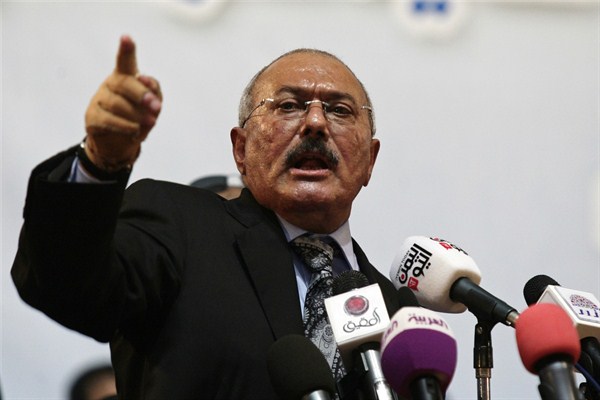Five years ago, on a hazy summer afternoon in Yemen’s capital, Sanaa, a security guard at the presidential palace led me around its mosque, which had been the site of a 2011 assassination attempt against then-President Ali Abdullah Saleh during the height of the Arab Spring protests. The shoes of the men who were killed in the bombing—a who’s who of Yemen’s ruling party—were still piled outside the mosque’s entrance.
Saleh was very lucky that day. He had been standing near the mosque’s doorway, away from the center of the room that had taken the brunt of the explosion, the security guard explained to me. The guard believed that God had protected Saleh—a view held by many residents in Sanaa, who revered Saleh, by then their ex-president. Those Yemenis who didn’t like Saleh just shook their heads with disdain and thought: This man can’t die. After all, when Saleh assumed office in 1978, most predicted a swift assassination, since that had been the trend at the time for Yemeni rulers. The country had three presidents in the year before Saleh took power; two of them were assassinated. But Saleh’s end wouldn’t come for another 39 years, almost 34 of them spent ruling Yemen.
On Monday, Saleh’s divine protection—or luck, or wit or whatever had kept him alive for so long—ran out. The former president, who had managed to connive his way back into a position of power even after he resigned in 2012, was killed by Houthi rebels, the Iran-aligned militants and Saleh’s erstwhile allies in Yemen’s current war. The exact nature of Saleh’s death is still uncertain, and the Houthi rebels and Saleh’s supporters claim different narratives about exactly where he was when he died. Regardless, the news sent shockwaves across Yemen. Love or revile him, it was hard to imagine the future of the country without Saleh.

